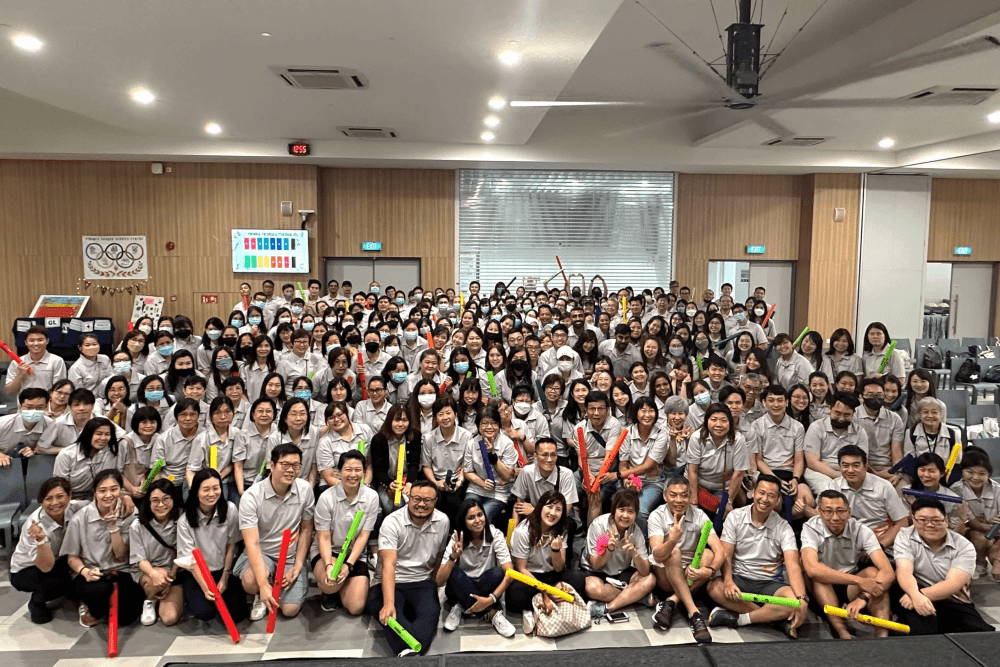Common Mistakes You Should Avoid When Planning Your Next Team Building Event
Team building done right? It’s energising, meaningful, and brings your team closer together.
Team building done wrong? It becomes just another checkbox on the calendar — and worse, a wasted opportunity.
At PulseActiv, we’ve seen both ends of the spectrum — and through years of designing hundreds of team building experiences, we’ve identified key mistakes that can quietly sabotage even the most well-intentioned sessions. Whether you’re planning your first event or your fiftieth, here’s what to avoid.
1. Not Defining a Clear Objective
“We just want them to have fun” is a valid goal — but it still counts as an objective.
The real problem is when nothing is clarified. Without direction, activities often feel disconnected or mismatched.
Also ask yourself: how deep do you want it to go?
Some clients want light fun. Others want problem-solving, mindset shifts, or behaviour change. If your team isn’t ready for something too heavy or isn’t used to deep reflection, pushing too far may backfire. Always match the program to your people.
2. Copy-Pasting Past Formats
Running the same program year after year (“Let’s just do Amazing Race again”) creates fatigue — especially among returning participants.
While consistency can be good, stagnation isn’t. Even if the theme stays the same, change up the flow, storyline, or challenge mechanics to keep things fresh and exciting.
3. Ignoring Team Dynamics
What works for one team might flop with another. Ignoring age, personality types, or comfort levels can alienate your participants.
For example:
- Forcing quieter employees into loud, public games
- Using high-competition formats with a senior-heavy audience
- Designing games that reward the loudest voice in the room
At PulseActiv, we always ask: Who’s your team? From there, we build activities that meet them where they are.
4. Poor Game Design
One of the most overlooked issues is activity design that allows one or two individuals to dominate — while others switch off.
Avoid:
- Games that are too quiz-based or require fast recall
- Challenges that reward individual speed over team contribution
Our focus is always on designing experiences where everyone plays a part and success depends on the group’s dynamic, not a single player’s ability.
5. Poor Time & Logistics Planning
No matter how creative the activity is, poor logistics can kill engagement instantly.
Common pitfalls:
- Rushed transitions with no buffer time
- Unclear instructions at the start of the session
- Not accounting for setup or movement time (especially in large groups)
These lead to stress, confusion, and momentum loss. A well-paced program should breathe — not feel like a frantic race against the clock.
6. Trying to Please Everyone
We get it — you want something for everyone. But packing in too many segments or game types usually ends up backfiring.
It’s overwhelming and leaves people feeling like they’ve done a little bit of everything, but connected to nothing.
Pro Tip:
Whatever you’re planning, try to keep the total number of activities or segments under 7. Even short games create a sense of fatigue when there are too many in a row.
7. Skipping the Pre-Event Briefing
Your team shows up unsure of what they’re doing, what to wear, or why they’re there. Instant engagement killer.
A short pre-event briefing — even via email or during a morning huddle — goes a long way. It sets the tone, builds anticipation, and lets people know what to expect (and how to mentally prepare).
8. Rushing the Program
We’ve seen this one often: a well-intentioned client wants to “just do something quick” and squeezes everything into a 1-hour window. While it’s possible to run something short and sharp, there’s always a natural flow to account for:
- Settling in
- Instructions
- Group movement
- Opening/closing remarks
If it feels too rushed, the energy dips and participants disengage. Leave enough breathing room so the session feels purposeful — not like a speedrun.
9. Overcomplicating the Program
Customisation is great — until it isn’t.
Sometimes, in the effort to tailor every aspect of the session, the result becomes confusing, fragmented, or simply overwhelming for participants. Complexity should never come at the cost of clarity.
Remember: your team isn’t reading the planning brief. They’re experiencing the program live — and simplicity often equals stronger impact.
10. Not Following Up After
You ran a great session… but then what?
Failing to follow up — whether through photos, a thank-you note, or a short reflection — turns a high-impact experience into a forgotten one. The best team building events don’t end when the last game finishes. They continue through the stories told, moments remembered, and connections carried forward.
Conclusion
Great team building doesn’t happen by accident. It’s designed — thoughtfully, intentionally, and always with your team in mind.
At PulseActiv, we believe that every session should do more than just fill a calendar slot. It should feel like it was built for your people, with just the right mix of energy, purpose, and personality.
Avoid these mistakes, and you’ll already be halfway to success. Need help crafting something that’s fun and meaningful? We’re ready when you are.
If you want to read more of our articles, click here.

